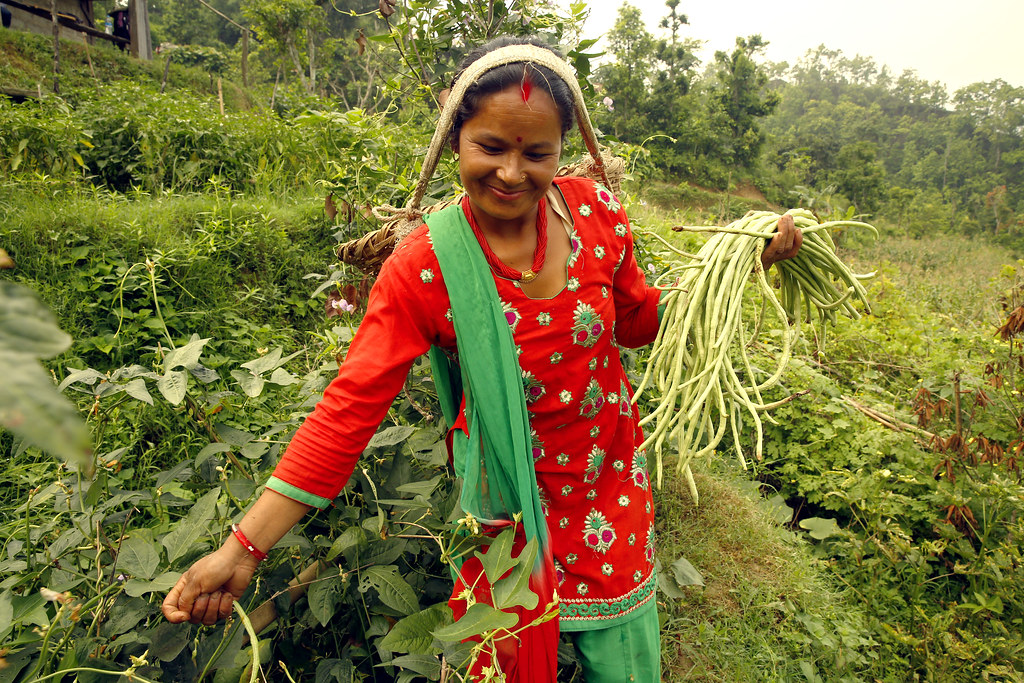

The women of Galkot Dudilabhati, who were confined to household chores have now taken the lead in collective farming. The women, who were dependent on their husband’s income are able to earn some money and run the household.
Two years ago, eight women rented eight ropanis of land in Jamire of Galkot Municipality-1, Dudilabhati and started collective farming. Since then, the income has increased and these women have become entrepreneurs.
In 2019, the Melmilap Integrated Farmers Group was formed and women started collective farming. Sumitra Karki, chairperson of the Melmilap Integrated Farmers Group, said that women have started spending half of their time in collective farming and half of their time in individual vegetable farming. At present, both seasonal and non-seasonal vegetables including dill, cauliflower, cabbage and tomato are being produced collectively.
“We used to do only housework, then collectively rented barren fields in the village and started farming,” she said. “We have been investing our income till now. We have already invested Rs. 1.8 million in commercial agriculture which started from Rs. 120,000 at the beginning.”
Karki says that she has been producing millet as part of protection of indigenous crops in collective farming. The women here have become more aware about collective vegetable farming and farming in general. The women here have been cultivating commercial vegetables individually as well as collectively. According to Karki, collective farming has changed the attitude of women towards agriculture.
After the success of their wives, many men, who had gone for foreign employment returned and joined in vegetable farming. The women here also have their own cardamom farm. According to the woman, cardamom has started giving good income. Kalpana Gurung, treasurer of the group, said that four of the participants in the group farming have been earning a decent income by registering their farms individually.
According to the women, the group is cultivating commercial vegetables in seven collective plastic tunnels and eight individual plastic tunnels. They started collectively in 2019 and made a profit of Rs 200,000 last year, said Chairman Karki. She said that the income would increase significantly with vegetable farming.
According to Karki, last year, the Agriculture Knowledge Center, Baglung, provided a grant of Rs 900,000. “Due to collective farming, we got the opportunity to learn, it became easier to go for training, and because of being organized, grants came. As a result, we have been able to cultivate individually as well,” said Karki.
All the women belonging to the group have cardamom cultivation in an area of four to ten ropanis and vegetable cultivation in a minimum of two ropanis of land. By working together in a group, acquiring knowledge and putting it into practice, 10 women here are optimistic about commercial vegetable farming.